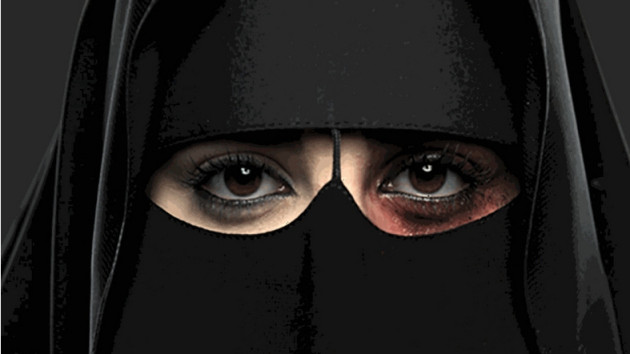Violence lies behind the Burqa
In February 2012, we posted on the arrest of an Iraqi émigré family in Phoenix for an attempted honor killing of their daughter:
Honor shame incidents appear to be of near epidemic proportions among Iraqi Muslim immigrants in Phoenix. As we noted in our earlier post, an Iraqi Muslim immigrant father had run down and killed his daughter and was convicted in a Maricopa County Court Case last year in another honor killing. CAIR spokesman, Ibrahim Hooper, engaged in taqiyya when he told the media that the Arizona honor shame violence . . . were “isolated incidents”. His bald-faced comment was: “”We condemn any false justification for domestic violence or abuse based on religious beliefs.”
These were evidence of a history of high profile honor shame killings and violence perpetrated on Muslim women that have occurred in Canada and the US. We had the conviction in a Kingston , Ontario courtroom of the Canadian Afghan Shafia family for horrific quadruple honor murders of another wife and three daughters in a polygamous Montreal household. We had the murder of a divorced Muslim woman in Tampa, Florida. There was the murder of a daughter in Atlanta by her Pakistani émigré father. The country was riveted by the tragic death of two daughters of an American wife killed by their father, a fugitive Egyptian cab driver in Texas. There was the ghastly murder of wife in Buffalo by the founder of a ‘moderate’ Muslim TV channel. Besides the Shafia family in Montreal, we had the death of a young Muslim girl at the hands of her father and brother in Mississauga, Ontario.
But it is not just Canada and the US in the West, honor shame violence has even occurred down under. That was revealed in a recent incident involving the savage beating of a Muslim teenager reported in The New Zealand Herald, “Burqa hid injuries of teen repeatedly bashed – police”:
A teenage girl police believe was beaten at home was forced to hide her facial injuries behind a burqa, while members of the Muslim community are alleged to have hushed up the abuse.
Her injuries included a broken nose, damaged teeth and extensive bruising. Police claim the 15-year-old was subjected to sustained physical abuse from at least one family member over two or more months.
“The case was brought to police attention when a school friend of the girl was made aware of the abuse and was able to borrow a cell phone from another child at a neighboring school to call 111,” child protection officer Detective Sarah Boniface said. “The girl was not able to get access to a phone herself.”
Dr. Phyllis Chesler, prominent American feminist and fellow of The Middle East Forum, is an advocate for banning the Burqa. Prompted by this New Zealand incident, she responded in a FoxNews op ed, “Beneath the burqa — a bruised and badly beaten teenager”. She cites the burqa [as]:
A sensory deprivation isolation chamber, (sensory deprivation is used as a form of torture); a burqa is also an ambulatory body bag and I oppose this with all my mind and heart as a violation of human and women’s rights.
I am no fan of the burqa and have even argued that the West should ban it.
I believe that the kind of men who expect and demand that women wear burqas in the West today are likely to be radical Islamists; as such, they may be more likely to engage in acts of military jihad here. The Koran absolutely does not mandate the burqa or, for that matter, a face covering of any kind.
In her Fox News op ed Chesler cites the extreme example of quadruple honor killings committed by the convicted Afghan Canadian Shafia family. Chesler drew attention to the moral equivalence of “omerta” in Muslim families. Chesler said, “that sustained physical abuse and psychological cruelty often precedes or is correlated with a subsequent honor killing”. In the case of the savage beating of the Muslim teenager in New Zealand, hidden from public view by a Burqa, Chesler commented that the police became aware that “members of the community in positions of power and trust knew that the abuse was serious but did not help the girl.”
Chesler knows about the potential violence committed against Muslim women first hand. As a young American Jewish bride of an Afghan Muslim husband she was virtually imprisoned in a polygamous Afghan Muslim household after her US passport was taken away from her upon arrival in Kabul. She cites that episode from five decades ago as a motivating factor behind her career as a prominent feminist and opponent of Sharia honor shame violence, often hidden behind burqas. Chesler reveals this defining moment of her Afghan experience in a recently published memoir, An American Bride in Kabul. We will publish both a review of Chesler’s latest book and an interview with the author in the January 2014 New English Review.
EDITORS NOTE: This column originally appeared on The New English Review.


